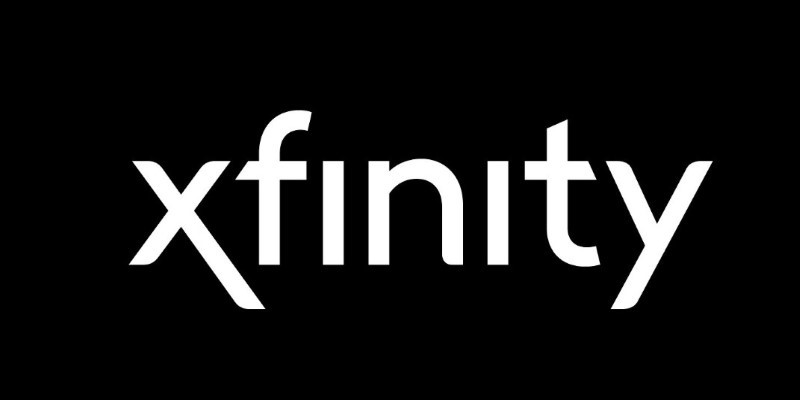Navigating the Internet World: A Senior’s Guide to Finding the Best Deals in 2024
The internet has become an essential part of everyday life, offering countless opportunities to stay connected, informed, and entertained. For seniors over 55, the digital world can be both a lifeline and a challenge. While the benefits of staying online are clear, finding the right internet plan that is affordable, reliable, and easy to use can be daunting.

With so many providers and packages out there, how do you choose the one that best suits your needs? This guide is designed to help seniors navigate the complexities of internet service options, ensuring they find the best deals available in 2024.
Why the Internet Is Important for Seniors?
As we age, staying connected to family, friends, and the world becomes increasingly important. The internet offers a convenient way to maintain these connections. Whether its video chatting with grandchildren, accessing medical information, or simply staying up-to-date with news and hobbies, the internet provides a vital link to the world outside. Moreover, many services, including banking, shopping, and even healthcare, have shifted online, making internet access not just a luxury but a necessity.
Beyond these practical uses, the Internet can also be a source of learning and entertainment. Seniors can explore new hobbies, take online classes, and even join virtual communities of like-minded individuals. However, to fully enjoy these benefits, having the right internet connection is crucial.
Understanding Your Internet Needs
Before diving into specific deals and providers, its essential to assess your internet needs. Not all seniors use the internet in the same way, and understanding how youll use your connection can help you choose the most appropriate plan.
Light Users: If you primarily use the internet for emailing, browsing the web, and occasional video calls, a basic plan with lower speeds may suffice. These plans are often more affordable and can handle everyday online activities without issue.
Moderate Users: For those who enjoy streaming videos, participating in online classes, or downloading larger files, a mid-tier plan with higher speeds is recommended. This ensures smooth performance without buffering or slow download times.
Heavy Users: If you frequently stream HD content, play online games, or have multiple devices connected at once, a higher-speed plan with a larger data allowance is necessary. While these plans can be more expensive, they offer the best performance for demanding activities.
Key Factors to Consider When Choosing an Internet Plan
Selecting the right internet plan involves more than just looking at the price. Here are the key factors to consider:
Speed
Internet speed, measured in megabits per second (Mbps), determines how quickly data is transferred. Light users, who mainly browse and email, may only need 10-25 Mbps. If you stream videos or have multiple devices online, opt for higher speeds like 50-100 Mbps to ensure smooth performance.
Price
Look beyond the advertised price. Consider additional costs like equipment rental and installation fees and what the price will be after any promotional period ends. Compare the total cost over time rather than just the initial rate.
Contract Terms
Some plans require contracts, often with early termination fees. If you prefer flexibility, choose a no-contract plan, even if it costs slightly more. Contracts can lock you into a rate but reduce your ability to switch providers.
Data Limits
Some plans come with data caps, limiting your monthly usage. Exceeding the cap could lead to extra charges or slower speeds. For heavy users, an unlimited data plan is the best choice to avoid these issues.
Customer Service

Good customer service is vital, especially if you're not tech-savvy. Choose providers known for responsive, helpful support. This can make a big difference if you run into issues with your service.
Availability and Coverage
Not all providers are available everywhere. The type of connectionfiber, cable, DSL, or satellitealso varies by location. Check whats available in your area, especially in rural regions where options may be limited.
Equipment and Installation
Most plans require a modem and router. Some providers include these, while others charge a rental fee. If possible, buy your own to save in the long run. Also, consider the installation costssome providers offer free professional setup, while others might charge.
Extras and Add-ons
Many plans come with extras like security software or Wi-Fi hotspots. Evaluate whether these add value or just increase the overall cost. Only pay for features you actually need.
Flexibility and Bundling
Bundling the internet with TV or phone service can save money. However, ensure the bundle meets your needs and doesn't just add unnecessary services. Sometimes standalone internet is the better deal.
Reliability
Reliable service is crucial. Frequent outages or slow speeds can be frustrating. Research a providers reliability in your area through reviews and local feedback before committing.
Senior-Friendly Internet Providers in 2024
As internet access becomes increasingly essential for staying connected, informed, and entertained, many providers are tailoring their services to meet the needs of seniors. Here are some of the most senior-friendly internet providers in 2024:
Spectrum Internet
Spectrum is known for offering plans that cater to seniors, particularly with its Spectrum Internet Assist program. This program is designed for those on a fixed income and provides affordable, reliable internet with no contract and no data caps. The simplicity of their plans, combined with consistent pricing, makes Spectrum a great choice for seniors who want straightforward service without worrying about unexpected fees or complicated terms.
Xfinity

Xfinity offers a range of plans suitable for different levels of internet usage, from basic browsing to heavy streaming. They also provide a senior discount, which makes their plans more affordable. Xfinity is recognized for its robust customer support, including a dedicated helpline for older adults who might need extra assistance with technical issues or billing questions.
AT&T Internet
AT&T is another provider that offers flexible and affordable internet plans for seniors. Their Access from AT&T program provides discounted rates for those who qualify based on income or participation in programs like Supplemental Security Income (SSI). With various plans available, seniors can choose the one that best fits their usage needs, whether they require basic connectivity or more robust speeds for streaming and video calls.
Verizon Fios
Verizon Fios is an excellent option for seniors who require a fast, reliable internet connection. While it may be on the higher end in terms of pricing, the quality of serviceespecially for those who need fiber-optic speedsis top-notch. Verizon also offers good customer service, making it easier for seniors to manage their internet service without hassle.
Cox Communications
Cox offers the Connect2Compete program, which is tailored for seniors on a fixed income. This plan includes affordable rates, free installation, and access to a digital literacy program, which is particularly helpful for seniors who are new to using the Internet. Cox's commitment to supporting seniors extends beyond just providing internet accessthey also offer resources to help older adults become more comfortable online.
Conclusion
Navigating internet service options can be challenging, but by understanding your needs and comparing providers, you can find a plan that balances value and reliability. For seniors over 55, the right internet connection is key to staying connected, informed, and engaged. With careful research, you can secure a plan that fits your budget and lifestyle. The internet offers endless possibilitiestake the time to choose wisely and enjoy all the benefits it brings without overspending.
On this page
Why the Internet Is Important for Seniors? Understanding Your Internet Needs Key Factors to Consider When Choosing an Internet Plan Speed Price Contract Terms Data Limits Customer Service Availability and Coverage Equipment and Installation Extras and Add-ons Flexibility and Bundling Reliability Senior-Friendly Internet Providers in 2024 Spectrum Internet Xfinity AT&T Internet Verizon Fios Cox Communications ConclusionRelated Articles

The Mind-Blowing Chevy Silverado Has Arrived: What You Need to Know
By - Kelly Walker
Apr 06, 2024

Cost-Effective Solutions for Roof Leaf Cleaning
By - Rick Novak
Sep 05, 2024

Figuring the Right Attorney - Things to Consider When Choosing One
By - Rick Novak
Apr 03, 2024

Exploring the Best Investment Opportunities in 2024
By - Kelly Walker
Sep 06, 2024

Transforming Audience Engagement Through Effective Video Marketing
By - Kelly Walker
Sep 06, 2024

Navigating the Best Animation Courses: A Pathway for Aspiring Animators
By - Rick Novak
Sep 05, 2024

Cybersecurity Masters Programs and Marketing Automation Tools in 2024
By - Kelly Walker
Sep 06, 2024

Navigating the Internet World: A Senior’s Guide to Finding the Best Deals in 2024
By - Rick Novak
Sep 04, 2024

Plaque Psoriasis Uncovered: A Comprehensive Guide
By - Rick Novak
Sep 04, 2024

The Grand Penny-Pincher's Guide to Event Management Success!
By - Rick Novak
Apr 04, 2024

Is It Easy to Learn Artificial Intelligence? What You Need to Know
By - Rick Novak
Apr 06, 2024

What are Prefabricated Homes - Learning Pros, Cons and Much More
By - Rick Novak
Apr 03, 2024
